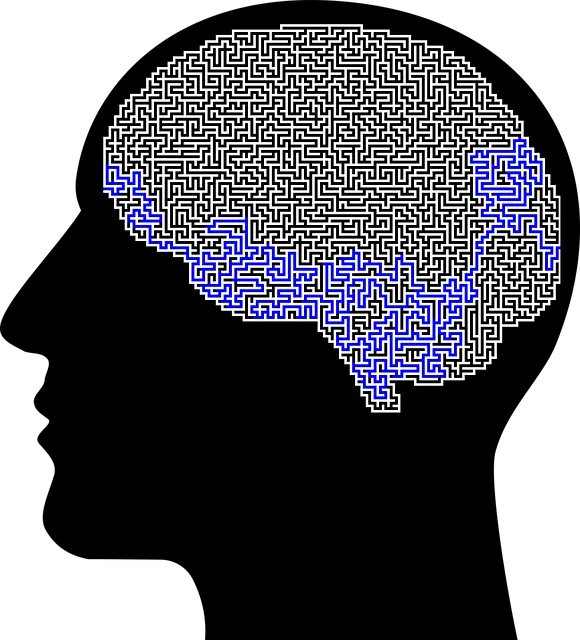The dedicated mental health hotline at Centennial Kaiser Permanente offers immediate crisis intervention using evidence-based techniques like mindfulness and compassion cultivation. Trained professionals provide swift support, de-escalate tension through empathetic communication, and teach stress reduction methods. Beyond initial aid, long-term care focuses on self-esteem improvement, education, and resilient coping mechanisms to promote recovery and thriving among clients.
In times of crisis, effective intervention strategies can be life-saving. This article guides you through essential components of crisis management, offering valuable insights for professionals and bystanders alike. We explore the foundational concept of crisis intervention with a spotlight on the pivotal role hotlines play, using the Centennial Kaiser Permanente Mental Health Number as a case study for its impact. Additionally, we delve into effective communication tactics and post-crisis support systems crucial for holistic recovery.
- Understanding Crisis Intervention: A Brief Overview
- The Role of Hotlines: Centennial Kaiser Permanente Mental Health Number as a Lifeline
- Effective Communication Strategies for Critical Situations
- Post-Crisis Support and Recovery: A Comprehensive Approach
Understanding Crisis Intervention: A Brief Overview

Crisis intervention is a critical aspect of mental health support, designed to provide immediate assistance during times of intense distress or impending danger. It involves a structured approach to help individuals navigate and overcome seemingly insurmountable challenges. The goal is to stabilize the person, ensure their safety, and facilitate their ability to cope with the crisis effectively.
At Centennial Kaiser Permanente, our mental health number is dedicated to offering these essential services. We recognize that crises can be unpredictable and often require swift action. Our team of trained professionals is equipped to handle a range of situations, from suicide prevention to trauma support. By employing evidence-based techniques, we focus on promoting coping skills development and self-esteem improvement, while also addressing the pervasive issue of mental illness stigma reduction efforts.
The Role of Hotlines: Centennial Kaiser Permanente Mental Health Number as a Lifeline

In moments of crisis, access to immediate support can make all the difference. The Centennial Kaiser Permanente Mental Health Number serves as a vital lifeline for individuals seeking emergency assistance. This dedicated hotline is more than just a phone number; it represents a commitment to providing swift and compassionate aid. Trained professionals on the other end offer a safe space for those in distress, ensuring they receive the necessary guidance and resources promptly.
The effectiveness of this service lies in its ability to connect people with effective emotional healing processes, such as mindfulness meditation and compassion cultivation practices. By utilizing these techniques during the initial intervention, individuals can begin their journey towards recovery while speaking with a trained support staff member. This integrated approach not only provides immediate relief but also equips callers with valuable tools for long-term mental well-being.
Effective Communication Strategies for Critical Situations

In critical situations, effective communication is a powerful tool for crisis intervention. At Centennial Kaiser Permanente, their mental health number stands as a beacon of support, emphasizing the importance of open dialogue when facing distress. When engaging with individuals in crisis, clear and empathetic communication can de-escalate tension and foster trust. This involves active listening, where practitioners pay close attention to both verbal and non-verbal cues, ensuring they understand the person’s concerns and emotions accurately.
Adhering to Mind Over Matter principles, which focus on empowering individuals through mental resilience, requires a nuanced approach to communication. By validating their feelings, practitioners can initiate emotional healing processes, a key component in managing crises. Moreover, teaching stress reduction methods during these conversations not only offers immediate relief but also equips individuals with tools to navigate future challenges. This holistic strategy ensures that support extends beyond the initial interaction, promoting long-term well-being and mental health.
Post-Crisis Support and Recovery: A Comprehensive Approach

Post-crisis support and recovery are integral components of a comprehensive crisis intervention strategy. Once the immediate danger has passed, individuals often require sustained care to navigate the emotional aftermath. This phase involves a multifaceted approach tailored to address diverse psychological needs. At Centennial Kaiser Permanente, our mental health professionals offer long-term guidance, ensuring those affected by crises receive holistic support.
We believe in empowering individuals through self-esteem improvement and mental health education programs designed to foster resilience. By integrating evidence-based practices, we facilitate the development of effective coping mechanisms and promote healthy self-care routines. Our goal is to enable individuals to not only recover but also thrive, helping them rebuild their lives with enhanced psychological well-being and a renewed sense of purpose.
In conclusion, crisis intervention plays a pivotal role in providing immediate support and guiding individuals towards recovery. By understanding the fundamentals outlined in this article, including the significance of hotlines like the Centennial Kaiser Permanente Mental Health Number as a critical lifeline, effective communication strategies for navigating high-pressure situations, and comprehensive post-crisis support systems, we can better equip ourselves and our communities to respond effectively during times of crisis. These strategies not only offer immediate relief but also foster long-term resilience, ensuring that those facing mental health challenges receive the necessary care and guidance for a brighter future.






